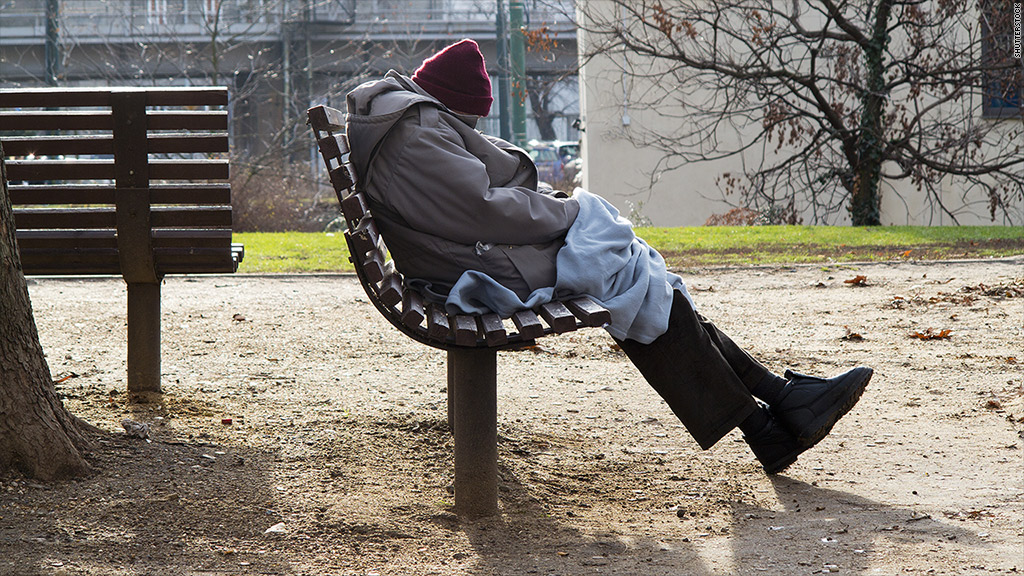
A growing number of cities across the country are making it "illegal to be homeless," according to a new report.
Despite a lack of affordable housing and emergency shelter, many of these communities are implementing laws that ban homeless residents from sitting or lying down in public, loitering, sleeping in vehicles, and begging for money or food.
"More cities are choosing to turn the necessary conduct of homeless people into criminal activity," said Maria Foscarinis, executive director of the National Law Center on Homelessness & Poverty (NLCHP).
The law center has tracked homelessness criminalization laws in 187 cities small and large since 2011.
Related: Camden shuts down tent cities
During that time, city-wide bans on camping in public -- which can include sleeping outside on the streets or in a tent -- have increased 60%.
The number of cities with laws prohibiting or restricting people from sitting or lying down in public has jumped by 43%, and bans on sleeping in vehicles have surged 119%. Meanwhile, laws prohibiting people from begging in public and loitering have climbed more than 20%.
And these laws are popping up even when people have few other options for survival, the NLCHP argues.
In Santa Cruz, Calif., for example, sleeping in vehicles and camping, sitting or lying down in public, is criminalized -- even though a local survey found that 83% of homeless people don't have access to housing or shelter.
Related: The rise of Tent City, USA
A spokesman for the city said that attorneys are required to dismiss any citations issued to homeless people who camp outside on nights that shelters in the area are full. Otherwise, the fine for violating the no-camping law is $20 or 8 hours of community service, and the offense is not punishable by jail time.
"The law does not criminalize homeless status, only conduct which is detrimental to community health and environment, i.e. lack of sanitation and degradation of City streets, open space and beaches," the Santa Cruz spokesman said in an email.

Violations do result in arrest in many cities, however. And the NLCHP points to a number of reports finding that the cost of enforcing these laws greatly exceeds the amount it would cost to provide people with options like affordable housing or shelter.
The Utah Housing and Community Development Division found that emergency room visits and jail stays end up costing nearly $17,000 per year for the average homeless person -- versus the $11,000 it would cost to provide that same person with an apartment and a social worker.
Related: Homeless valedictorian moves from shelter to dorm
Other analysis from Creative Housing Solutions estimates that providing permanent housing and case managers to Central Florida's chronically homeless would save taxpayers $149 million over the next decade that they would otherwise spend on law enforcement and medical care.
"Criminalization laws are the least effective and most expensive way for cities to address homelessness in their communities," said Tristia Bauman, a senior attorney at NLCHP.
And such laws only perpetuate the cycle of homelessness because they don't get to the root of the problem, the group argues.
"Arrested homeless people return to their communities, still with nowhere to live," the report states. "Moreover, criminal convictions -- even for minor crimes -- can create barriers to obtaining critical public benefits, employment, or housing, thus making homelessness more difficult to escape."
